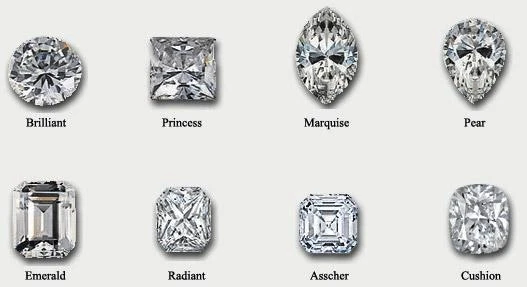As natural minerals, diamonds usually contain tiny 'Inclusions', which can take the form of crystals, clouds or feathers. These are rarely visible to the naked eye, but can be perceived under magnification. A diamond with no perceived inclusions is extremely rare and correspondingly expensive.
Using a GIA or a CIBJO Scale, diamonds are graded by clarity from Flawless to Imperfect 3. The descriptions under the GIA scheme are as follows:
- Flawless (FL)
- Internally Flawless (IF)
- Very Very Slightly Included (VVS1, VVS2) - i.e. there are very few inclusions or blemishes
- Very Slightly Included (VS1, VS2)
- Slightly Included (SI1, SI2)
- Included (I1, I2, I3)
A carat is 0.2 grams and, along with ‘points’ (one hundredth of a carat) forms the terminology used to describe the weight of a gemstone. Larger diamonds are rare and therefore considerably more valuable than smaller ones. The term derives from the use of carob seeds to measure the weight of gemstones in ancient times.
The colour of a diamond is determined using the GIA (Gemmological Institute of America) Scale, an alphabetical scale that grades the colour of a diamond from D (colourless - very rare and valuable) to Z (tinged with a yellowish colour).
The colour differences between diamonds (for example between an G or an H coloured diamond) are very subtle and difficult to ascertain without considerable training or experience.
The Cut is the only one of the 4C's to be determined by human intervention rather than nature. It is perhaps a diamond's most important characteristic, as a good cut will maximise the reflection of light through the top of the stone and the spectral colours visible, in essence providing brilliance.
Common cuts include 'Brilliant' and 'Fancy'. The latter encompasses a large number of popular cuts including 'Princess', 'Rose' and 'Step'.


